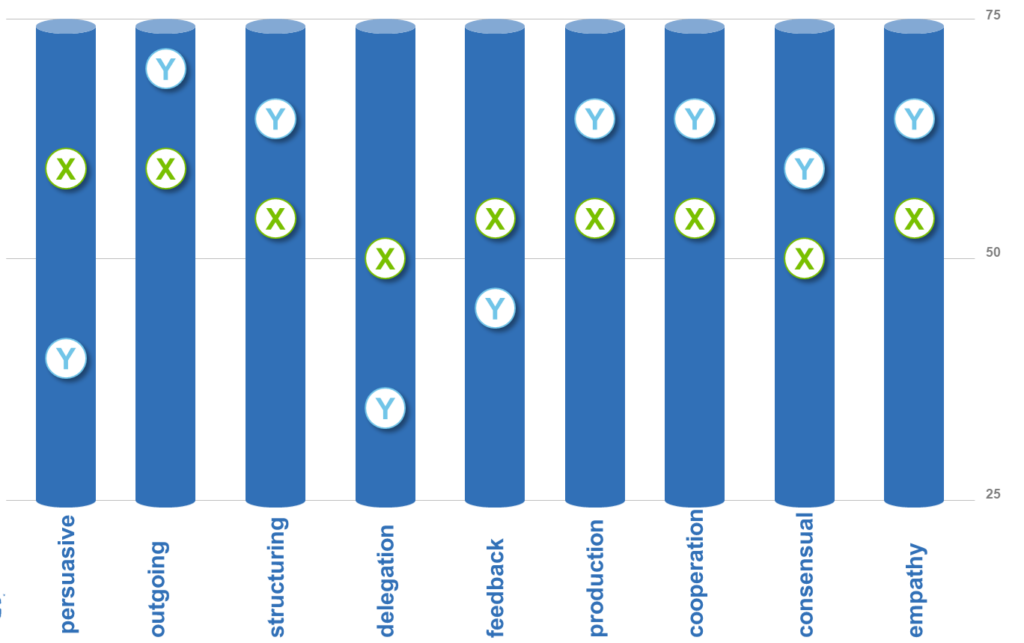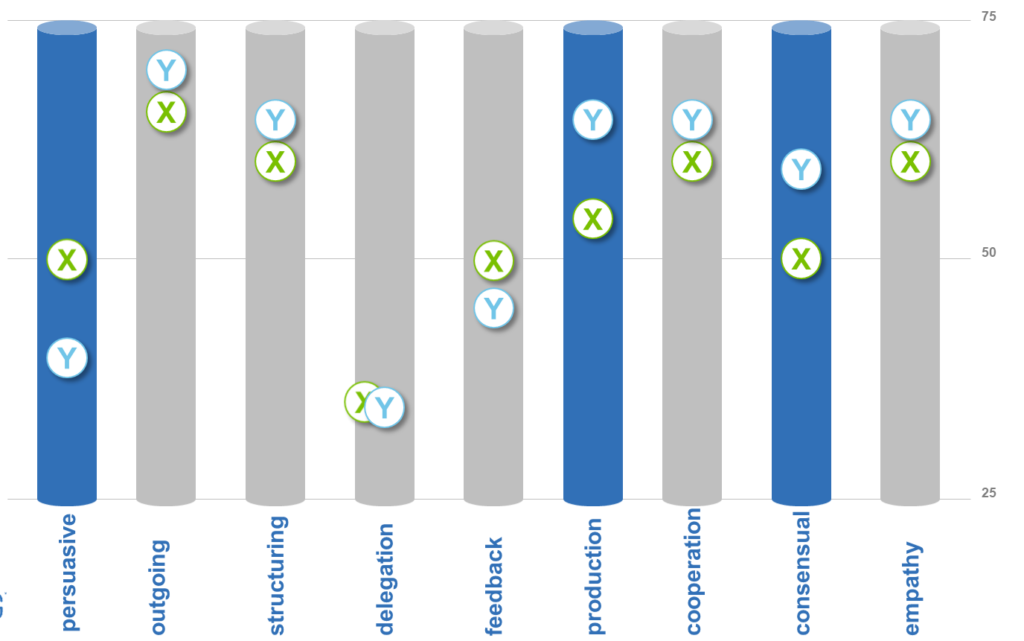While most Millennials are hardly “kids” anymore – many are approaching 40 – Baby Boomers and even Gen X-ers may still have a tendency to think of them as youngsters when it comes to workplace dynamics. Many perceive their behaviors and motivations as not only baffling, but completely unique to their generation.
In our latest webinar, Demystifying Millennials: What Motivation Research Can Tell us about Bridging the Generation Gap, we set out to use research to sort myth from fact when it comes to these generational gaps. Are Millennials really so unique in their approach to the world? Or is it possible that prior generations behaved similarly at the same age, but just don’t quite recall it that way?
Before we got to those findings, we spent some time grounding ourselves in what we know about each generation.
Baby Boomers (born 1946-1964)
Like their parents, Boomers are likely to stay loyal to organizations and avoid job-hopping; however, unlike their parents, they are motivated by positions, prestige, and climbing the ladder. Coming of age in era of protest and social revolution means that they instinctively question authority.
Generation X (born 1965-1980)
Gen Xers hold the majority of leadership positions at present, which means that they’re setting the course in many organizations. Unlike prior generations, who felt that it was their responsibility to work as long and as hard as they were asked, Gen X views work as a contract: they’re here to do a job, but they don’t want that job to interfere with their work-life balance. Gen X gets creative about side-stepping rules that they don’t like, rather than challenging them directly as their Boomer parents might have. They’re extremely independent and self-reliant.
Millennials (born 1981-1999)
This generation gets so much buzz, many of us could probably rattle off their key characteristics by heart. They grew up highly scheduled, so they struggle with free time; they’re used to social engagement through technology, so their communication patterns may be more brief than previous generations; they have a lot of flexibility, and they also want a lot of flexibility; they’re more socially conscious than any prior generation; they want to be included in everything. They also have an interesting duality, in that they were encouraged to start making noteworthy accomplishments and “building their resumes” as early as middle school, but they were also quite protected emotionally. This has created a group who are ambitious in the workplace but more laid back in other areas of their life.
The Data: How Generation X vs. Millennials Compare in the Workplace
In our research study comparing these two generations on 22 leadership behaviors (measured using the LEA 360™), when we didn’t control for age – i.e., when we compared Gen X now with Millennials now – we found nine noteworthy contrasts:
Gen X vs. Gen Y: Significant Differences
However, when we did control for age – i.e., when we compared Millennials now with Gen X at the same age – many of those gaps closed. In fact, we were left with only three noteworthy differences.
Gen X vs. Gen Y: Significant Differences when Controlling for Age
What about motivation?
Beyond looking at behavioral trends, we used data from the Individual Directions Inventory™ identify patterns in what drives leaders from each generation. These drivers measure not necessarily a skill, but something that gives the individual energy and keeps them motivated.
So what’s driving Millennials? A few things stand out:
- Millennials less energized by freely expressing their feelings – they may be talkative, but less inclined to share deeper self-reflections.
- Millennials do, however, love entertaining – think telling stories or being the center of attention (in a good way)
- Millennials are high excelling – they’re motivated by very ambitious goals
- Millennials love structuring and scheduling – so they can be good organizers of processes, and can find effective ways to get things done
- Millennials are slightly less independent – they like to have a sense of belonging
Why is motivation so critical? In addition to being the thing that gets us going each day, our drivers also become a lens through which we see the world. We naturally develop biases based on our own strong drivers, and assume that they are other people’s drivers as well. Because these drivers are beneath the surface, we use our biases to “fill in the blanks” and tell stories about what’s driving those around us. When we lack awareness of these biases, we can misattribute the intentions of others, causing distracting – even destructive – conflict.
One way to create awareness of contrasting motivations is to bring them out into the open, creating not just individual self-awareness but team awareness as well. The IDI Team Development Report is a tool that was designed for this purpose, shedding light on motivational clusters and contrasts in a way that is value-neutral, giving everyone on the team an opportunity to understand themselves and each other, reducing confusion and friction. It can also help unearth hidden sources of energy within the team, leading to better alignment and even improved efficiency.
Top Six Tips for Helping Millennials Thrive at Work
Leveraging these research insights, a few strategies emerge that are likely to energize millennials in the workplace:
√ Ask them questions to draw out deeper insights.
√ Give them opportunities to be in the spotlight.
√ Challenge them with stretch goals.
√ Help them feel connected to the organization and to their teams.
√ Coach them on persuasive skills.
√ Provide good training on how to delegate effectively and give clear feedback.
Remember, research on an entire population will never give you the information you need to work most effectively with an individual. Every person – no matter what their age – has their own unique behavioral patterns, motivations, and therefore their own unique path to success. For more research exploring generational patterns, visit the MRG Research Library.
If you missed the webinar and want to catch up, you can watch it on demand here.
The session also generated some fascinating questions, which we’ve answered below. If you have questions of your own, reach out any time at research@mrg.com.
Questions & Answers
Q: What do you think is causing the lower structuring scores as populations age?
A: We actually see both the motivation for structure and the behavior of structuring decrease with age as we go from Millennials to Gen X to Baby Boomers. We also see both the motivation for structure and the behavior of structuring go down as a leader moves up the hierarchy. This would suggest that folks are getting less energy from organizing and creating systems and procedures (and are therefore less likely to utilize the behavior as frequently as they once did). I think as people get older they are likely to find a wide variety of ways to accomplish things (both on their own and with others) so that they end up relying on other behaviors a bit more frequently (for example Persuasive, Communication and Feedback) and are therefore somewhat less reliant on Structuring.
Q: Regarding Feedback: would you say that Millennials want more but tend to provide less?
A: Yes, this is accurate. However, I think it will be easy for us to coach and train Millennials to give more feedback, and I think they will prove to be quick learners in this area.
Q: I’m surprised to see the low Expressing score for Millennials; I would have said the opposite!
A: Millennials are high on the behavior of Outgoing and high on the motivation to Entertain and, as a result, tend to be talkative, social and engaging. However, Expressing is about the motivation associated with sharing and showing feelings, and being emotionally spontaneous and expressive in personally revealing ways and in this, their motivation is less than their older colleagues. This may have more to do with the degree to which they have spent time exploring and understanding their own emotions than it has to do with a reluctance to be somewhat emotionally vulnerable.
Q: Based on this research, how should Millennials be given feedback (particularly constructive feedback) so that it is best received?
A: The more direct, respectful and specific the better. They will also do well when their achievements are enthusiastically appreciated and when constructive feedback includes confidence in the Millennial’s ability to be successful moving forward.
Q: It is surprising how similar the X and Y generations are considering how maligned Gen Y is sometimes made out to be. It seems that like past generations, each generation has an inflated view of themselves.
A: We absolutely agree with this. Older generations tend to have rose-colored memories about their own participation in work and life. Perhaps that is the reason we have the saying “How soon we forget!”
Q: What do Millennials like to be called?
A: I think this varies significantly but to the extent Gen Y folks do not like to be called Millennials, I would say it is likely because the term has been associated with many more negative attributes so the label in and of itself can be seen almost as an insult to some.


